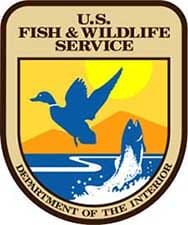

Washington, DC -(AmmoLand.com)- The U.S. Fish and Wildlife Service (USFWS) seeks input from members of the public on a number of wildlife species being considered for submission to the world’s largest and most influential meeting on international wildlife trade.
The 17th meeting of the Conference of the Parties (CoP17) to the Convention on International Trade in Endangered Species of Wild Fauna and Flora (CITES) will be held in Johannesburg, South Africa, from Sept. 24 through Oct. 5, 2016.
CITES is an international agreement initiated in 1973 and since ratified by 181 parties to protect certain wild animals and plants against over-exploitation as a result of international trade. More than 35,000 species of animals and plants benefit from CITES protection. Every two to three years, a session of the CoP is held to review, discuss and decide on changes in the implementation of CITES, including changes in protections for certain species.
“The CITES treaty provides a critical framework for global cooperation on wildlife trade and a powerful opportunity to combat wildlife trafficking. The Conference of the Parties offers a forum for the United States to demonstrate global leadership and collaboration in efforts to protect wild animals and plants from over-exploitation,” said Service Director Dan Ashe. “We encourage the public to participate by submitting comments and information regarding species proposals under consideration. Together, we can ensure international trade does not threaten the survival of imperiled wild animals and plants.”
The Federal Register notice for today’s announcement is available for public inspection at http://www.fws.gov/home/
During the next several months, the Service will seek information from range countries, scientists, industry experts and the public on a number of species including the narwhal, pangolin, chambered nautilus, polar bear, African lion, African grey parrot and American eel.
As the Service continues its evaluation, additional biological or trade information on individual species, particularly those listed as “undecided,” will be especially helpful. The public comment period for this notice will remain open until Oct. 27, 2015. When the notice publishes in the Federal Register Aug. 26, 2015, a complete list of species proposals, details on the proposed action, and an explanation of the rationale for the tentative U.S. position can be found at www.fws.gov/international.
Before making a final decision on any species, the Service will take into account all trade or biological data that is received. In April 2016, approximately 150 days before the start of CoP17, the Service will submit U.S. species proposals to be considered at CoP17.
Species protected by CITES are included in one of three appendices. As a party to CITES, the United States may propose amendments to the appendices for consideration at a CoP, including proposals for species to be included in, removed from or transferred between the CITES appendices (i.e., species proposals), or for exemptions from CITES requirements. Appendix I includes species threatened with extinction and provides the greatest level of protection, including restrictions on commercial trade. Appendix II includes species that, although currently not threatened with extinction, may become so without trade controls.
Changes to Appendices I and II must be proposed at a CoP and agreed to by a two-thirds majority of the parties present and voting. In contrast, changes to Appendix III can be requested by individual parties at any time. Appendix III includes species protected by at least one country that needs assistance from other parties to regulate international trade.
To learn more about the Service’s involvement in CITES, visit: http://www.fws.gov/
About the U.S. Fish and Wildlife Service:
The mission of the U.S. Fish and Wildlife Service is working with others to conserve, protect, and enhance fish, wildlife, plants, and their habitats for the continuing benefit of the American people. We are both a leader and trusted partner in fish and wildlife conservation, known for our scientific excellence, stewardship of lands and natural resources, dedicated professionals, and commitment to public service. For more information on our work and the people who make it happen, visit www.fws.gov.
Connect with our Facebook page at www.facebook.com/usfws, follow our tweets at twitter.com/usfwshq, watch our YouTube Channel at www.youtube.com/usfws and download photos from our Flickr page at www.flickr.com/photos/
